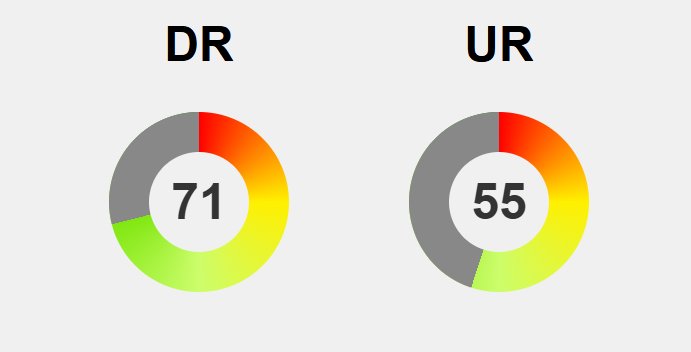Galileo Galilei’s daring pursuit of truth revolutionized science, challenging centuries-old beliefs rooted in authority and dogma. His innovative use of the telescope and empirical methods uncovered celestial phenomena that directly contradicted the geocentric model, igniting a cultural upheaval that pitted science against the Church. Despite facing persecution and house arrest, Galileo’s unwavering commitment to evidence over tradition cemented his legacy as a symbol of intellectual independence. His story raises a compelling question: did his relentless defiance make him a martyr for progress or a target of powerful institutions? As the father of modern science, his courage and curiosity continue to inspire us to question assumptions, embrace uncertainty, and push the boundaries of knowledge—reminding us that true progress often demands risking everything to uncover the truth.
Galileo Galilei: The Father of Modern Science and His Revolutionary Legacy
Galileo Galilei is often celebrated as the father of modern science, a title that highlights his revolutionary influence on how we understand the universe. His innovative approach combined careful observation, experimentation, and mathematical analysis, transforming science from a reliance on ancient texts and philosophical reasoning into a discipline rooted in evidence. Galileo’s work did more than add details to existing models; it challenged centuries-old assumptions and set new standards for scientific inquiry that still resonate today.
What makes Galileo’s story particularly compelling is his attitude toward knowledge itself. He was willing to question authority, challenge deeply held beliefs, and push the boundaries of what was considered acceptable in his time. His refusal to accept dogma without evidence marked a fundamental shift—one that prioritized curiosity, critical thinking, and empirical proof over tradition. This intellectual independence was not just a personal trait but a defining feature of his legacy as a pioneer who believed in the power of evidence to uncover truth.
Galileo’s influence extended beyond individual discoveries. He was instrumental in shifting the scientific paradigm from a geocentric universe—where Earth was believed to be the center—to a heliocentric model that placed the Sun at the core. His use of the telescope allowed him to observe moons orbiting Jupiter, phases of Venus, and other celestial phenomena that directly contradicted the long-held belief that all celestial bodies revolved around Earth. These observations not only challenged existing scientific models but also threatened religious doctrines that supported the Earth-centric view.
This confrontation with the prevailing worldview was more than a scientific debate; it was a cultural and ideological upheaval. Galileo’s support for Copernicus’s heliocentric theory put him at odds with the Church, which viewed his findings as a threat to divine order and authority. His willingness to stand by his evidence, despite risking persecution, exemplified a broader defiance of institutional power—a stance that made him a symbol of intellectual independence and progress. His life became a testament to the importance of questioning authority in pursuit of truth.
Galileo’s courage came at a personal cost. When he publicly championed heliocentrism, he faced fierce opposition from religious authorities and societal norms. His trial for heresy resulted in a forced recantation and house arrest, confining him for the remainder of his life. Yet, even in exile, his ideas persisted, influencing future generations and inspiring a new wave of scientific thinking. His unwavering commitment to truth, despite the risks, cemented his reputation as a revolutionary who prioritized discovery over conformity.
Today, Galileo’s legacy endures because his work exemplifies the transformative power of curiosity and resilience. His innovations in observational tools and his insistence on empirical evidence laid the groundwork for modern science. More than that, he became a symbol of the fight for intellectual freedom—an enduring reminder that questioning authority and standing firm in the pursuit of truth can catalyze profound change. His story encourages us to challenge assumptions, embrace uncertainty, and pursue knowledge with unwavering resolve.
Breaking the Mold: The Scientific and Cultural World Before Galileo
Before Galileo’s groundbreaking ideas took hold, the scientific landscape was firmly rooted in long-standing beliefs shaped by ancient philosophy and tradition. The prevailing model placed Earth at the universe’s center—what we now call the geocentric view—endorsed by Aristotle and Ptolemy. According to these thinkers, celestial bodies moved in perfect circles around a stationary Earth, a concept deeply intertwined with religious teachings and societal norms. This worldview wasn’t just a scientific idea; it was woven into the cultural and spiritual fabric of the time, making it difficult to challenge without facing significant resistance.
During this era, knowledge was often accepted based on authority rather than direct evidence. Scholars relied heavily on classical texts, interpreting observations in ways that supported the established models. To reconcile discrepancies, astronomers employed complex systems of epicycles—intricate mathematical corrections that kept the geocentric model intact. These adjustments made the model seem consistent with available observations, but they also reinforced a rigid scientific framework that discouraged questioning or innovation.
Religious institutions, especially the Catholic Church, played a central role in shaping this worldview. The idea that Earth occupied a privileged, central position reinforced the notion that humanity had a special place in the universe. Challenging this idea was perceived as a threat to divine order and societal stability. For centuries, the Church maintained that the universe was divinely created with Earth at its core, and any deviation from this belief was met with censure or persecution. This created a powerful barrier to scientific progress, as questioning the accepted cosmology often meant risking one’s reputation or safety.
Technology of the period further cemented these beliefs. Without telescopes or advanced instruments, astronomers relied on naked-eye observations, which limited the accuracy and scope of their data. Many celestial phenomena appeared ambiguous or misleading, leading scholars to interpret them through the lens of existing assumptions. As a result, the geocentric model persisted not because it was irrefutably proven, but because it was supported by authority and matched the limited evidence available. Challenging this view required revolutionary new tools and ideas.
Influence from earlier thinkers like Nicolaus Copernicus began to stir curiosity about alternative models. Copernicus proposed a heliocentric universe, placing the Sun at the center, but his ideas initially gained little traction because they lacked concrete evidence and faced strong opposition. It was Galileo’s development of the telescope that truly changed the game. This technological breakthrough allowed him to observe moons orbiting Jupiter, the phases of Venus, and other celestial details that could not be explained by the geocentric model. These discoveries directly challenged the long-held belief that Earth was the universe’s fixed center.
Galileo’s observations didn’t just question a scientific model—they challenged the very foundation of the accepted worldview. His support for Copernicus’s heliocentric theory threatened not only scientific orthodoxy but also religious doctrines that upheld Earth’s central place in creation. This clash ignited a fierce conflict between emerging science and established authority, with Galileo caught in the crossfire. His willingness to push past traditional boundaries and embrace new evidence marked a turning point that would reshape the understanding of the cosmos and the nature of knowledge itself.
In this tense environment, Galileo’s willingness to question authority and embrace innovation was revolutionary. His work was more than just scientific discovery; it was an act of defiance against centuries of intellectual stagnation. By developing and applying new observational tools, he opened the door for a scientific revolution rooted in evidence and critical thinking. His courage to challenge entrenched beliefs laid the groundwork for a new approach to understanding the universe—one that continues to influence science today.
Pioneering Change: The Enduring Impact and Reflection of Galileo’s Discoveries
Galileo’s discoveries did more than just reshape our understanding of the cosmos; they set new standards for scientific inquiry that still influence research today. His meticulous use of observation and experimentation, exemplified through innovations like the telescope, proved that evidence can challenge and overturn long-standing beliefs. Moving away from reliance on ancient texts and philosophical reasoning alone, Galileo demonstrated that empirical data is essential for progress. This shift from dogma to evidence laid the foundation for modern science, inspiring future generations to prioritize observation, experimentation, and mathematical analysis over unquestioned authority.
Beyond his technical achievements, Galileo’s role as a symbol of progress and independence has left a lasting mark. His willingness to stand up to powerful institutions, even at great personal risk, exemplifies how courage often drives scientific advancement. His advocacy for heliocentrism—despite fierce opposition from the Church and societal norms—showed that questioning authority and trusting in evidence can spark meaningful change. Galileo’s defiance elevated him from a mere scientist to a martyr for intellectual freedom, embodying the spirit of inquiry that continues to motivate scientists today.
His influence extends beyond science into our cultural understanding of knowledge itself. By challenging the long-held authority of religious and classical figures, Galileo helped shift perceptions about who holds the right to define truth. His courage in facing persecution and his unwavering commitment to evidence fostered a culture that values skepticism and independent thinking. This cultural shift has been crucial in creating an environment where science can flourish free from dogmatic restrictions, encouraging others to question, explore, and discover on their own terms.
Galileo’s resilience in the face of opposition underscores a vital lesson: progress often requires pushing beyond fear of consequences. His trial for heresy and subsequent house arrest didn’t silence his ideas; instead, they amplified his message. His persistence demonstrated that breakthroughs frequently come from challenging entrenched beliefs and standing firm in pursuit of truth. Over time, his ideas influenced not only scientific thought but also societal attitudes about questioning authority and valuing evidence-based reasoning.
Today, Galileo’s legacy continues to resonate because he exemplifies a fundamental truth: scientific progress depends on curiosity, skepticism, and resilience. His unwavering dedication to empirical evidence and his courage to challenge the status quo remind us of the importance of questioning assumptions and embracing uncertainty. His life encourages us to think critically, pursue knowledge relentlessly, and stand firm against opposition when seeking the truth. In doing so, Galileo helped shape a mindset that values progress driven by courage, curiosity, and the relentless quest for understanding.
His pioneering spirit laid the groundwork for the scientific revolution, inspiring subsequent thinkers to explore uncharted territories of knowledge. Galileo’s emphasis on direct observation and experimentation became the hallmark of scientific methodology, guiding countless discoveries that expanded our understanding of nature. His legacy is a testament to how individual courage can ignite broader change, transforming scientific practice and cultural attitudes alike.
In the end, Galileo’s story reminds us that progress often involves sacrifice and defiance. His relentless pursuit of truth, despite personal cost, exemplifies the power of conviction and the importance of standing up for what one believes is right. His life and work continue to serve as an inspiring call to challenge assumptions, value evidence, and push the boundaries of human knowledge. As a symbol of scientific progress and intellectual independence, Galileo’s legacy endures, encouraging us all to question, explore, and never accept the world as given.
For those interested in exploring Galileo’s groundbreaking contributions further, additional resources are available at Galileo's Discoveries and Their Impact. Delving into these materials can provide deeper insights into how his work continues to shape our understanding of science and history.


